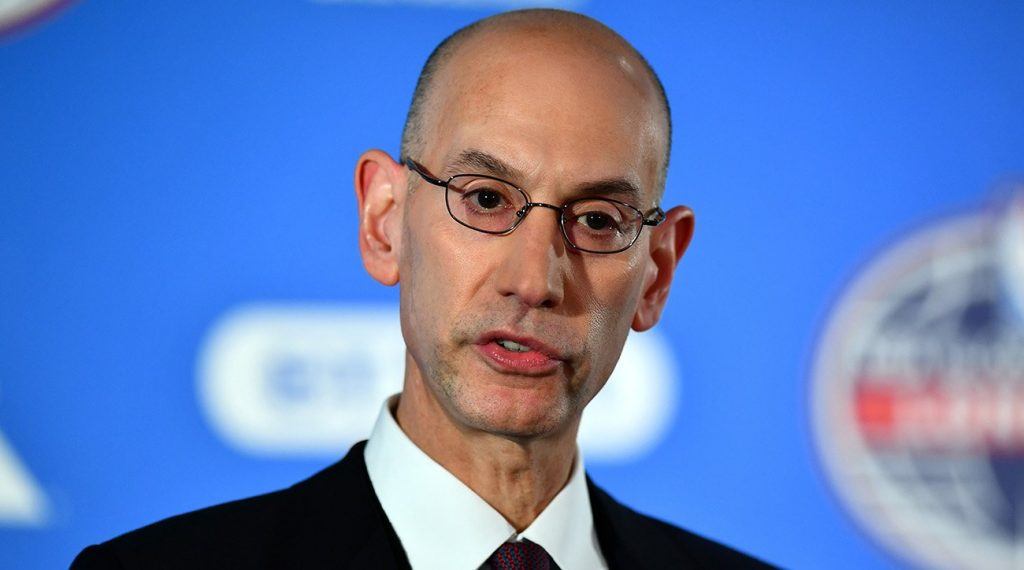NBA Commissioner Pushes for Fee on Sports Betting Amid Mixed Signals
Posted on: February 19, 2018, 03:00h.
Last updated on: February 19, 2018, 12:47h.
NBA Commissioner Adam Silver is still advocating an integrity fee from states that pass sports betting legislation, but seemed to contradict earlier statements on what to call those payments.

A month ago he classified it as an integrity fee. Saturday he called it a royalty.
Silver was holding his annual State of the NBA press conference at the All Star festivities in Los Angeles when he was asked about the proposed levee. He and executives from Major League Baseball want to assess sports books if the Supreme Court overturns Professional and Amateur Sports Protection Act (PASPA) of 1992.
They want a 1 percent fee from what facilities would take in from sports betting. Experts have estimated that would amount to 20 percent of revenues. He has insisted it is necessary to offset “enormous additional expenses for the league that go directly to integrity.”
But the CEO of the NBA then told a group of reporters that it could be called something else.
“We created in our mind what a model bill should look like,” he said. “Call it an integrity fee, call it a royalty to the league.”
Fee Proving Tough Sell
Indiana and Missouri currently have legislation under consideration that would legalize sports betting and include a fee to the NBA and MLB.
Lobbyists for the professional sports organizations have said the money is needed to police issues related to gambling such as enforcement and additional training.
American Gaming Association President and CEO Geoff Freeman said last month in a statement that giving money to the entities was akin to skimming off the top and that the money was not justified.
“Now, let’s get real about eliminating the illegal market, protecting consumers and determining the role of government – a role that most certainly does not include transferring money from bettors to multi-billion dollar sports leagues,” he said.
The NBA currently has money in its budget to scrutinize integrity in offshore internet sites and illegal markets. Silver did not disclose how much costs would increase if the 20 states that are interested in sports betting passed legislation.
Conflicting Message
Silver also seemed to dispute his own narrative when he started combining the fee with operational expenditures and mentioning they should be compensated for using their intellectual property.
“I would only say from the NBA’s standpoint we will spend this year roughly $7.5 billion creating this content, creating these games,” he said. “Those are total expenses for the season. So this notion that as the intellectual property creators that we should receive a 1 percent fee seems very fair to me.”
It might be justified to Silver, but if the money is going to anything other than monitoring gambling it would be a tougher sell to lawmakers. Even before his Saturday remarks the West Virginia’s Finance Committee approved Senate Bill 415 that rejected the 1 percent fee.
Silver did say he was willing to work with governmental bodies on compromises.
“But to the extent that we sit down and there are other ways and better ways to reach a fair result, we’re happy to have those discussions,” he said.
No comments yet